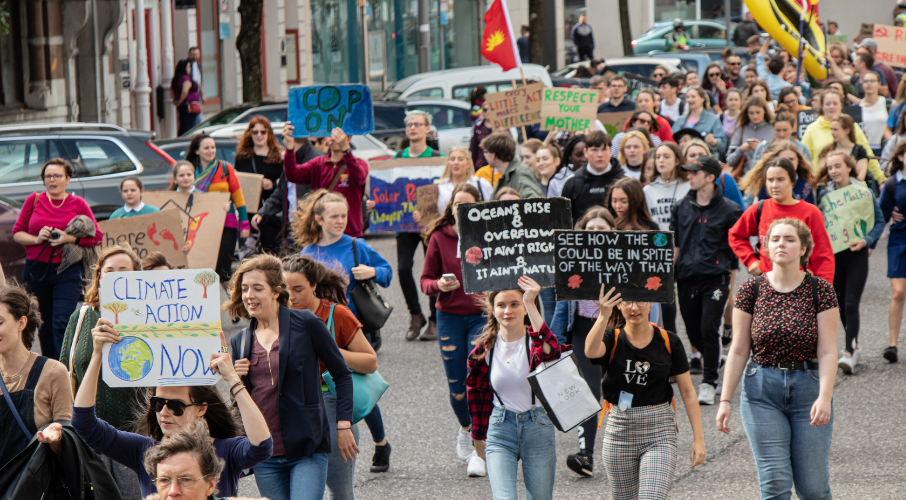By Ken Coates, March 1, 2022
Just as a combined police force was clearing the Freedom Convoy out of Ottawa, one of the worst examples of activist destruction in Canadian history occurred in northern British Columbia. The wanton destruction of private property in the Coastal GasLink camp was completely uncalled for. Wet’suwet’en and Carrier-Sekani Tribal Councill leaders have already roundly condemned, in the harshest possible terms, these violent acts.
This activist aggression has become predictable. Smaller examples of this type of disrespect for law can be seen among the extreme members of the Fairy Creek protests on Vancouver Island, where failure to attend to court injunctions against intrusions have sullied the peaceful protest efforts of the less radical majority. The British Columbia courts, in issuing and sustaining injunctions, have condemned the extreme actions and long-term lawlessness of a minority of the protestors.
Several things are crystal clear in the latest destructive act. These radicals do not represent First Nations in the region. They have been thoroughly repudiated by community leaders, many of whom strongly support the Coastal GasLink project. Even the less destructive pipeline opponents do not have the communities on board. Indeed, many residents and leaders are infuriated by the protestors’ constant references to themselves as “land defenders.” The Wet’suwet’en people, and not self-appointed outsiders, can defend themselves and their territories just fine.
Provincial and federal interventions have been problematic. Governments have worked directly with a group of hereditary chiefs whose standing in law and practice is unclear and who have not secured the support of the communities in any traditional or democratic manner. By working directly with a self-declared group of hereditary chiefs, governments have divided the communities badly and added to regional uncertainty.
The radical protestors, whose actions have clearly crossed the line of acceptable behaviour, are connected loosely to international environmental groups and, it appears, foreign funding. Will the federal government, which is fixated about such things as it relates to the Freedom Convoy, take comparable action here? Following the money might produce some unwelcome truths, but it is appropriate given the violence that has taken place.
The combination of disinformation (deliberate) and misinformation (inaccurate) swirling around the camp destruction is remarkable in its speed and sophistication. Supporters of the action hint that the whole mess was manufactured – by the company and the police, perhaps? – and cast doubt on the legitimacy of the images and stories coming out of the attack zone. Sewing seeds of uncertainty in complex and intense situations is a time-worn tactic and it is now playing out in real time.
The issues at stake here are truly complicated. LNG production, which has overwhelming support among northern Indigenous peoples, should be held up internationally as a sign of Indigenous self-determination and assertion of economic rights. Instead, inaccurate reports leave the impression that the company and governments are imposing the project on ill-prepared and unwilling Indigenous peoples. Nonsense. Community support is clear, widespread, and long-term.
Coastal GasLink and the Wet’suwet’en have been selected for radical action for simple reasons. Canada’s governments are so guilt-ridden about past development projects that they cannot get their heads around an initiative that has strong Indigenous support. Globally, Canada has rendered itself vulnerable to internal and external protests because our national priorities remain unclear and ill-defended. Coastal GasLink spent years securing the appropriate permits and regulatory approval and has done solid work with the Indigenous communities along the route. But opponents of natural gas development find little traction in Putin’s Russia, Iran, and Qatar. So, they attack the low-hanging political fruit – and sadly that is Canada.
First Nations leaders in the North, such as Chief Councillor Crystal Smith of the Haisla and Karen Ogden and Kim Baird of the First Nations LNG Alliance, among many others, have argued that ethically and responsibly produced Canadian LNG can be an important contributor to global LNG reductions, primarily by offsetting coal use in Asia. Moreover, LNG production and infrastructure projects provide the Indigenous peoples of northern BC with a small measure of Canadian prosperity and much desired financial autonomy from the Government of Canada.
The attack on the Coastal Gas Link camp in Wet’suwet’en territory is more than a cowardly and pathetic assault on a perfectly legal and widely debated infrastructure project. It is an affront to Indigenous autonomy and an attack on community-supported strategies for economic revitalization. It challenges the integrity of the Canadian policing and judicial system, both of which have tested the company’s plans and found them acceptable.
Ultimately, a small group of self-appointed environmental radicals have, in pursuing their ideological ends and with extreme arrogance, sullied the integrity of the broader Canadian and international effort to address climate change. We can and must do better.
Ken Coates is a Distinguished Fellow with the Macdonald-Laurier Institute






